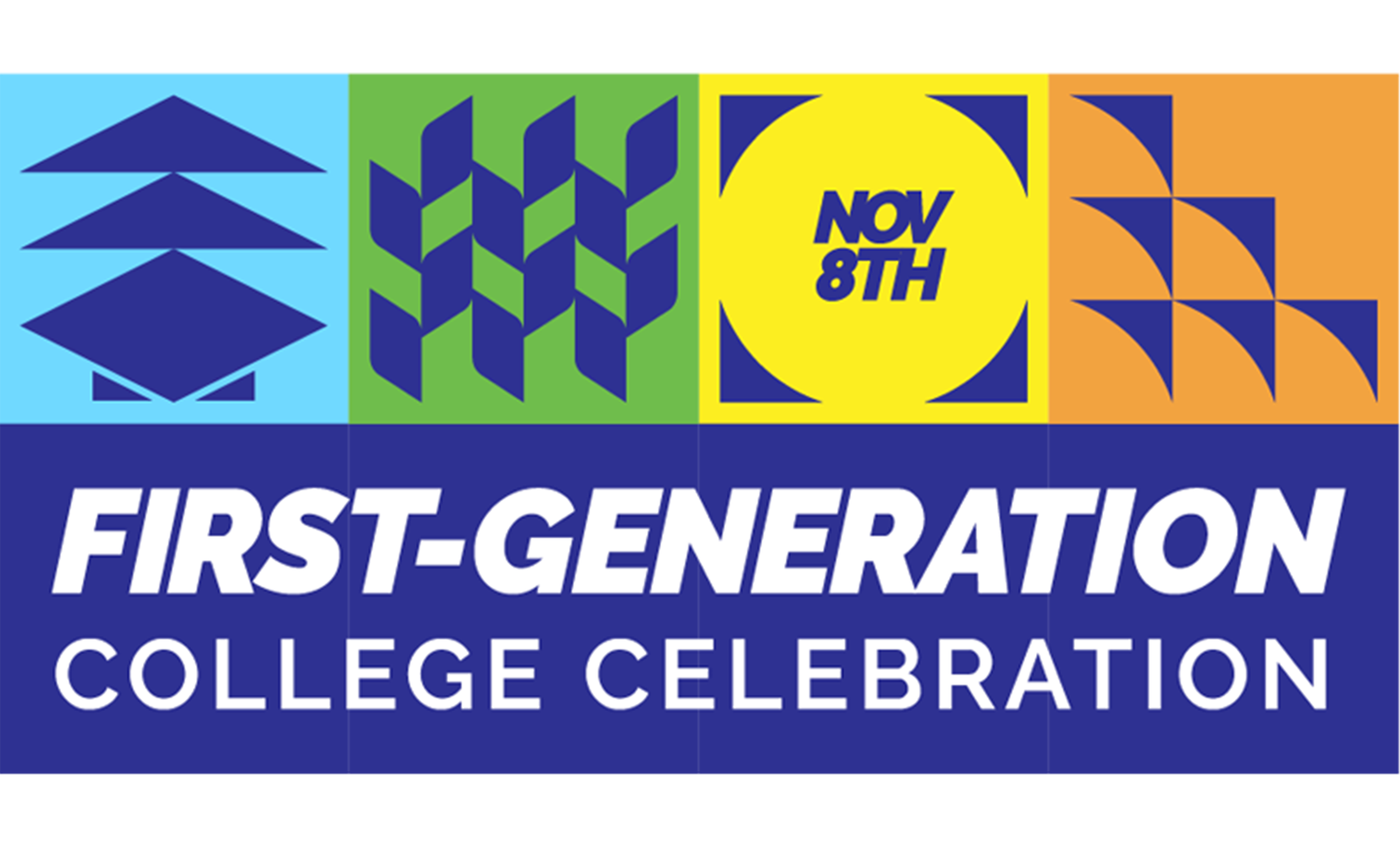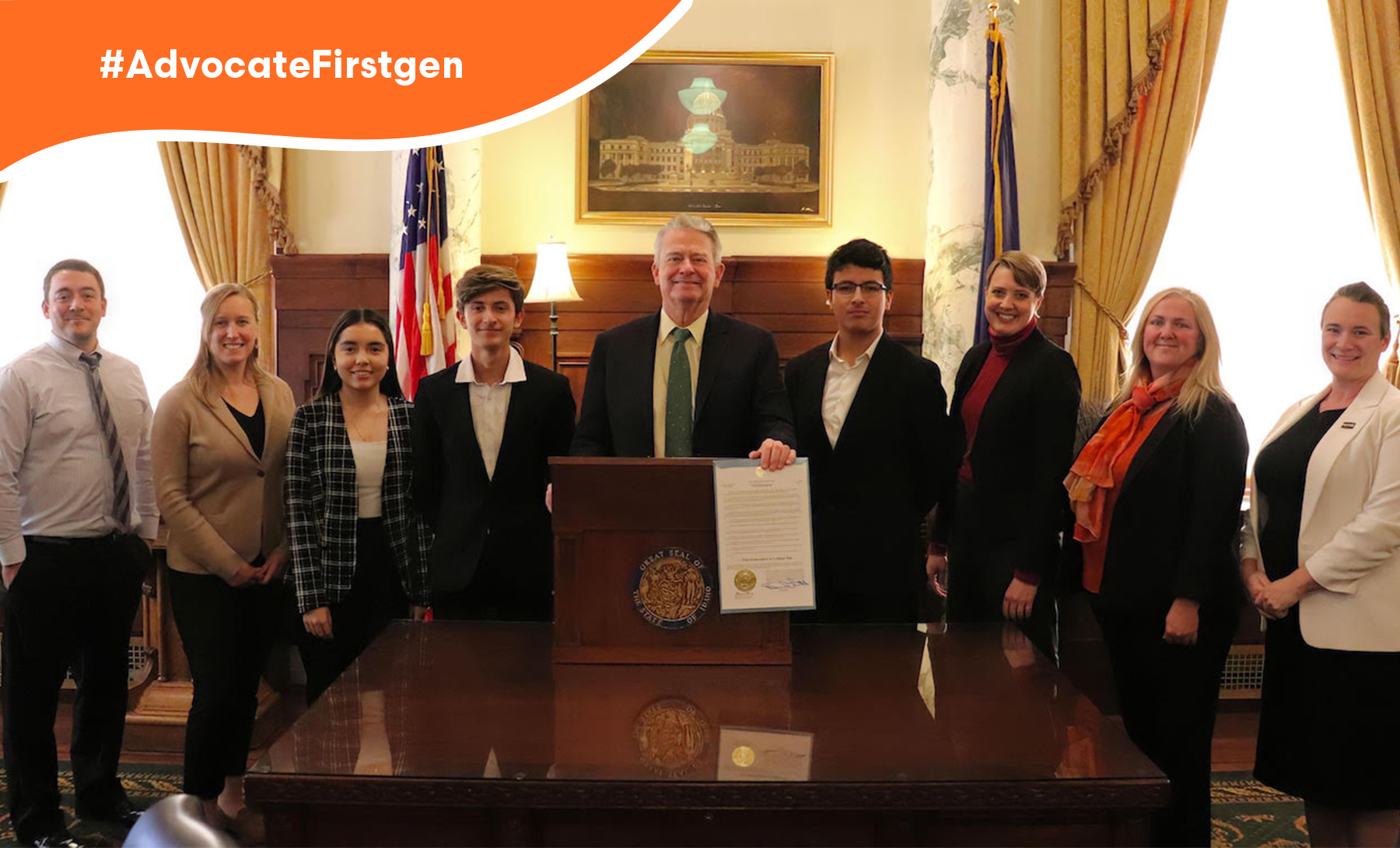Beginning in November 2017, the Center for First-generation Student Success and the Council for Opportunity in Education (COE) have sponsored the National First-Generation College Celebration on November 8, the anniversary of the signing of the Higher Education Act of 1965 (HEA), to raise awareness of the first-generation identity. 2021 marks the fifth year of celebrating and advocating for this important student demographic.
The HEA sought to create equal opportunity for U.S. citizens from minority and low-income backgrounds in higher education settings. The legislation established the federal Pell grants, loans, and other programs to help students and made other key investments in higher education institutions. This law is also where the term “first-generation” made its first appearance.1
This year, first-generation college graduate Senator Roger Marshall (R-KS); the first TRIO alumnus in the Senate Senator Raphael Warnock (D-GA); and Congressional TRIO Caucus Co-Chairs, Representative Gwen Moore (D-WI, TRIO alumna) and Representative Mike Simpson (R-ID) have introduced a bipartisan resolution (S.Res.437) to celebrate the accomplishments of first-generation college students and explain how intentionally supporting one third of currently enrolled college students will increase access and success across postsecondary experiences.
Here’s how you can ask your representatives to cosponsor the resolution:
- Visit Democracy.io;
- Input your address and click the “Submit” button;
- On the “Who do you want to write to?” page, make sure the names of both senators and your representative are checked and click the “Write to them!” button;
- In the Subject line, type or copy and paste “S.Res.437: Expressing Support for the designation of November 8 as National First-Generation College Celebration Day;" and
- Copy and paste the content on the right or similar text into the message box and input your respective information. In the dropdown box for “topic,” indicate “higher education” or “education” (depending on the options presented.)
As a constituent of yours, I urge you to support the proposed Senate Resolution (S.Res.437) to recognize November 8 as “National First-Generation College Celebration Day.” This resolution has bipartisan support from Sen. Marshall (R-KS), Sen. Warnock (D-GA), Rep. Simpson (R-ID), and Rep. Moore (D-WI). As first-generation college graduates or current students, many of your constituents are making significant contributions in a variety of fields. Recognizing their contributions to higher education and beyond would align with the national celebration timed to honor the signing of the Higher Education Act of 1965. Thank you for your consideration.
Recognizing First-Generation College Celebration by federal legislation would elevate awareness and is another way to recognize the growth occurring since our first celebrations in 2017. Examples of the expanding awareness and growth of the celebrations include:
First, a new logo debuted this year that firmly takes into account the intersectional identities of first-generation college students and the vast array of institutions, corporations, non-profits, and foundations now engaging in celebrations. The new logo features four elements–Celebration, Broad Perspectives, Growth, and New Heights–which capture the expansion of First-Generation College Celebration experiences to include first-generation college students, graduates, alumni, allies, and advocates.
Recognizing First-Generation College Celebration by federal legislation would elevate awareness and is another way to recognize the growth occurring since our first celebrations in 2017.
_insertContent=C67D7140-C20B-11EA-A76B0242AC100403,displayTeaserInlinePromoRight_Another area of growth is demonstrated by the number of colleges and universities offering programming to celebrate the success of first-generation students, as well as first-generation staff and faculty. These celebrations have grown exponentially both in the number of participating institutions and scope of events. Many institutions offer creative programming along with educational and celebratory events over the course of a week. We encourage higher education professions, students, and those in the workforce to share their activities on social media by using the hashtag #CelebrateFirstGen. These activities are important in acknowledging first-generation students as an integral constituency at higher education institutions.
To build upon the heightened awareness and momentum from these events, the Center encourages higher education professionals and students to take the celebration one step further to #AdvocateFirstgen! What actions can be taken to keep the attention on first-generation students and leverage the support and excitement?
You can #AdvocateFirstgen by:
-
Engaging in additional recruitment efforts for an existing or new student organization? Not every first-generation student recognizes the definition applies to them at the time they enter postsecondary education. Given the extra attention by First-Generation College Celebration events, students may realize they identify as first-generation and become interested in opportunities to connect with other students. Offering member sign-up during celebration events is one way to expand membership.
-
Conducting an audit of campus programs that support first-generation students? Does your institution’s current list of first-generation programming consider the intersectional identities of many of your first-generation students including race, ethnicity, part-time, returning learners, or veterans (to name a few)? Is the physics department offering peer mentoring for first-generation students? A campus-wide audit can reveal certain strategies and programs ripe for scaling to include more students.
-
Mapping the locations of faculty and staff who self-identify as first-generation? Many institutions pass out stickers, buttons, or other swag to faculty and staff members who identify as first-generation. Creating a directory or map of offices for these individuals and posting it on first-generation program websites can assist students in locating professionals who may make them feel more comfortable when seeking advice.
Celebrating first-generation students as campus assets is important, and First-Generation College Celebration events showcase many of these students and their talents and contributions to the community. Identifying next steps to continue the momentum and build upon the awareness provides additional opportunities to #AdvocateFirstgen!
What strategies have helped you to champion first-generation students successfully? Share your perspective on first-generation student advocacy and pertinent policy issues across social media with #AdvocateFirstgen.
Footnotes
1Higher Education Act of 1965, 1998 Higher Education Act Amendments Subpart 2—Federal Early Outreach and Student Services Programs CHAPTER 1—FEDERAL TRIO PROGRAMS SEC. 402A. 20 U.S.C. 1070a–11
(f) DEFINITIONS.—For the purpose of this chapter: (1) FIRST GENERATION COLLEGE STUDENT.—The term ‘‘first-generation college student’’ means— (A) An individual both of whose parents did not complete a baccalaureate degree; or (B) In the case of any individual who regularly resided with and received support from only one parent, an individual whose only such parent did not complete a baccalaureate degree.



